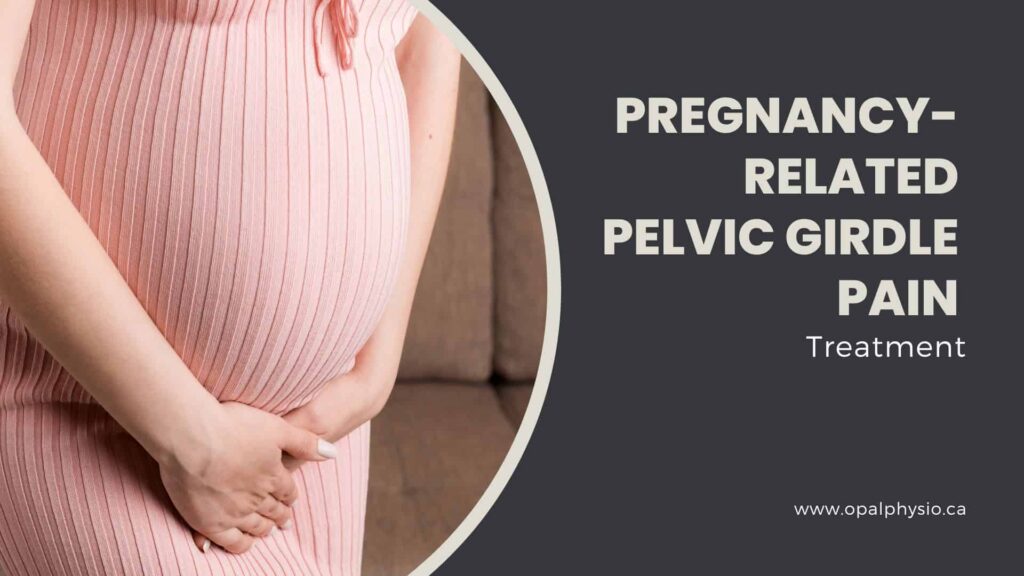Pregnancy-Related Pelvic Girdle Pain Physiotherapy
There are several challenges and discomfort that can arise during pregnancy. Pregnancy-related pelvic girdle pain (PRPGP) is one such issue and is a common condition affecting expectant mothers’ quality of life. That’s why we proudly offer specialized physiotherapy treatments to alleviate pregnancy-related pelvic girdle pain and help you enjoy a more comfortable pregnancy.

What is pelvic girdle pain in pregnancy?
Pregnancy-related pelvic girdle pain is a common condition that affects up to 70% of pregnant women. It is distinguished by pain in the pelvis, lower back, and hips. This pain can range from mild discomfort to severe debilitating pain that interferes with daily activities and sleep.
Pregnancy-related pelvic girdle pain is thought to be caused by a complex interaction between the complex anatomy of the female pelvis and the high-intensity demand placed on it during pregnancy. Causes of pregnancy-related pelvic girdle pain include changes in hormone levels, increased weight and pressure of the fetus on the pelvic area, and alterations in posture and movement patterns.
It’s important to address PRPGP promptly to prevent it from worsening and impacting your pregnancy. Early intervention and targeted treatment are crucial for managing PGP and ensuring a smoother pregnancy experience.
How physiotherapy help with pelvic girdle pain in pregnancy?
At Opal Physio, our experienced physiotherapists in Langley are trained in techniques specifically designed to address pregnancy-related pelvic girdle pain. Our approach involves a personalized treatment plan considering your unique needs and symptoms. Our services include:
In-Depth assessment: Our physiotherapists will comprehensively evaluate your pelvic girdle, lower back, and hip region to identify the root cause of your pain and design a targeted therapy plan.
Manual therapy: We use gentle, hands-on techniques to mobilize and influence the joints and soft tissues in the pelvic region to reduce pain and improve function.
Exercise prescription: Our physio will create a tailored exercise program that focuses on strengthening the muscles surrounding the pelvic girdle and improving your overall stability and movement patterns.
Education and guidance: We consider that knowledge is power. Our therapists will educate you on proper posture, body mechanics, and self-care techniques to help you manage your PRPGP effectively.
Continuing support: We’re here for you throughout your pregnancy journey. Your physio will monitor your progress, adjust your treatment plan as needed, and provide ongoing encouragement and support.
Related Information Treatment for pelvic pain In women

Why choose Opal Physio?
We are dedicated to providing effective care for expectant mothers experiencing PRPGP. Our Langley location offers the following:
- A team of experienced and highly skilled physiotherapists
- A warm and welcoming environment
- Flexible appointment times to accommodate your busy schedule
- Direct billing to most insurance providers
Take the initial step towards relief from pelvic girdle pain during pregnancy
Don’t let PRPGP affect your pregnancy experience. Schedule a consultation at Opal Physio’s Langley location today by calling us at 604-532-7887. Together, we can help you manage your pain and enjoy a more comfortable pregnancy journey.
